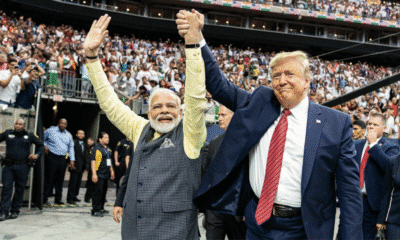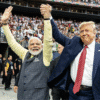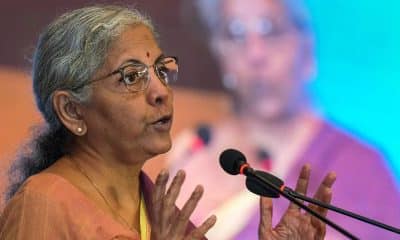Business
Mars billion-dollar brand Galaxy now Made in India
Mars has begun local production of Galaxy, global billion-dollar brand in India, bringing its price to Rs 10. This is the lowest priced Galaxy in the world. The Indian unit of the $40 billion confectionary and snacking company is straddling its pricing portfolio from Rs 10 to upwards of Rs 500, in an effort to tackle unprecedented inflation.
Kalpesh Parmar, Mars Wrigley India country general manager, told ET that this Rs 10 pack is not only for tier-2 and 3 cities. “It is for the people who want to watch their lifestyles. They want a treat, but want an under 70-calorie product. We want to be responsible, so people can control their portions.”
Parmar described India as a key market for Mars Inc. “Our lens is long term. We have seen pressures which are inflationary, and we are mitigating it, we are getting support from our global colleagues, local teams are working will suppliers,” he said. The company will evaluate bringing its entire global portfolio into emerging markets, with countries like India with a billion-plus population among the ones with large growth potential.
Mars executive pointed out that Indians consume only 140 grams of chocolate per person per year, while in countries like the United States, it is about 10 kilograms. “That’s because our share of mouth also includes mithais and local delicacies. So, the job to be done is penetration, which we are doing now with the Rs 10 Galaxy. We have ramped up our distribution already four times on Galaxy, and we continue to drive the same.”
Industry experts highlight that the India chocolate category is estimated at Rs 12,000 crore and growing 8-10%. The moulded or tablet category is Rs 5,500 crore-plus segment and is growing faster than the overall market. Parmar said the ongoing festive season has given Mars a positive surprise with e-commerce and traditional channels doing well, and modern trade which has opened up in the last 90 days seeing an uplift.
“Our teams have been on ground to engage with shoppers; the share of gifting has evolved a lot and with that, the pent-up demand. From last year’s depressed Diwali compared to this year compared to this year, we can see a lot of celebrations among friends and families, and in offices.”
Also Read: NCLT restrains Future Group from calling shareholders’ meetings
Furthermore, Mars which competes with Mondelez and Nestle, is pushing rural reach to acquire new customers. “All of us have been learning how big tier two, tier three and rural is an opportunity for all categories. Hence, this price point becomes very relevant for us,” Parmar said.













































Pingback: Poor air quality in Delhi has held students back from schools.